 Heaven indeed hears our cries. This past weekend the Church released a new series of seven videos. I’m excited to see what seems like the Brethren in Salt Lake attempting to change the culture of the Church. Without diminishing the role of the family in the gospel plan, they seem to be encouraging members to replace our current family-centered culture with a Christ-centered culture, one in which all members feel they belong. The speakers in the new videos don’t directly call out the problem of singles not fitting in with the family-centered culture of the Church, although they scream that very message as I watch them. I suspect the Brethren want to speak in more general terms so their message can have broader application. Whatever their reasoning, I support the Brethren. Although not every video addresses the problem many singles have with attending church, most of them do. And they do it without mentioning the words single, married, or family. Here’s the new videos by speaker and title.
Note that all the brethren are apostles and the two sisters serve in general auxiliary presidencies. Although all these videos are outstanding, the comments from Elder Christofferson and Sister McConkie most impressed me. Walking together 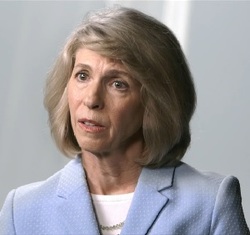 Since I’m a gentleman, let’s consider the lady first. Sister McConkie does a bang-up job of calling attention to the neglected and ignored among us. Even though she never says the word single, you know she’s talking about singles. Sister McConkie admits she knows “people who come to church every Sunday so they can be inspired and uplifted and who just simply walk away feeling judged and unloved, unneeded, like there is no place for them at church. We need to do this differently.” Can I get an amen? Seriously, if that’s not a call to change the culture, albeit a tongue-in-cheek one, I don’t know what is. She continues, We cannot allow judgement to dictate the way we interact with people. It’s just not right. . . . We just cannot be or even call ourselves a disciple of Christ if we are not helping others along that path. The gospel of Jesus Christ does not marginalize people. People marginalize people. And we have to fix that. We need to be sensitive and love them and allow them the opportunity to grow and to blossom and to be their best selves. They have talents and abilities and personality that is needed in the kingdom of God, and if we’re going to build the kingdom of God on the earth we need everyone to come, to come and do their part. And we need to recognize that. When anyone’s shadow darkens the door of the chapel, they ought to feel immediately embraced and loved and lifted and inspired, that when they walk out that door, to go and be better because they know the Lord loves them and because they have friends in their faith. Wow! That sweet vision would make a wonderful reality for LDS singles everywhere! We need to walk together, singles and marrieds, helping each other along the journey to our eternal home. I love that bit about building the kingdom. If we’re going to be serious — I mean really serious — about building God’s Kingdom on earth, then we have to include every faithful soul. We do play a part, but it’s not about us. It’s about everyone, and that means reaching out to include everyone so everyone can play their part. Coming together 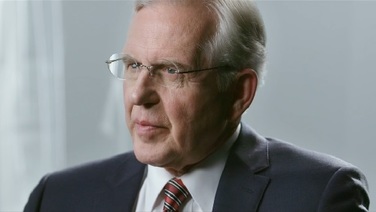 Elder Christofferson does no less in maintaining that glorious banner. He directly pursues the question of fitting in with a positive and emphatic yes. Like the speakers in the other videos, he never uses words like single, married, and family. Yet we all know his words apply in that context. He then brings up Paul’s classic analogy that we’re all “many members yet but one body” in Christ (1 Corinthians 12:20). I especially love Paul’s rhetoric questions: "If the foot shall say, Because I am not the hand, I am not of the body; is it therefore not of the body? And if the ear shall say, Because I am not the eye, I am not of the body; is it therefore not of the body? If the whole body were an eye, where were the hearing? If the whole were hearing, where were the smelling?” (1 Corinthians 12:15–17) In God’s design for His Kingdom, everyone willing to make covenants with Him is needed. The problem comes when many LDS singles don’t feel needed. I love how Elder Christofferson acknowledges the reality of such feelings and then offers a two prong solution: The diversity we find now in the Church may be just the beginning. Frankly, I think we’ll see greater and greater diversity. In the ancient church there was tremendous diversity. And it’s not just diversity for diversity’s sake, but the fact that people can bring different gifts and perspectives and the wide range of experience and backgrounds and challenges that people face will show us what really is essential in the gospel of Christ and that much of the rest that’s been perhaps acquired over time and is more cultural than doctrinal can slip away and we can really learn to be disciples. So on the one hand, we’ve got to be better as a people at receiving and helping and walking together with everybody, and on the other hand, every individual needs to be determined that they’re going to have a place in the kingdom of God. They’re going to have a place in the body of Christ. And others who are thoughtless or careless or worse can’t prohibit that, can’t drive them away, can’t take it away from them” (emphasis added). Yes, LDS singles need to own their life and control their reality by controlling their focus. At the same time, I love Elder Christofferson’s recognition that some of what we do is “more cultural than doctrinal [and] can slip away.” I’ll gladly place our alienating family-centered culture on that list. Of course, changing that culture means coming together and being real disciples of the Master. But isn’t that we should be doing anyway? Rising together  A new day is dawning. The time when LDS singles needed to have the mark of belonging to the Church community to get the help they need is dying. Rising is a time when true disciples of the Lord reach out and bring all willing to make covenants with God together in a grand, diverse unity of the faith. Single and married will be situations, not identities. And the culture we embrace and promote will center on the Savior, He Who spilt His precious blood so that all of us could be redeemed. The time has come for us to walk together. The time has come for us to embrace a true unity of the faith. The time has come for us to be true disciples of Christ and start building the Kingdom for real. The time has come for us to change the culture.
0 Comments
 Occasionally I step into social media. What I see usually doesn’t strike me as all that meaningful, further convincing me to limit my social media participation. Still, what I sometimes see makes me think. And sometimes I see something like that often enough that I feel compelled to say something. In one form or another, it’s an incarnation of the meme you see here. I have no issue with imparting advice. Social media seems especially adept for that, and I’ve certainly done as much repeatedly in my blog and on my program. Just last week I gave advice to local leaders on how to partner in order to minister to singles. So giving advice doesn’t annoy me. What annoys me is the advice being given. Let’s dig a bit deeper into what we have here. Standing in the way  On the surface, the advice seems to make sense. Step out of your rose-smelling world and take a whiff of reality. Guys chase after what they want, so if he’s not chasing you, he’s not interested in you. But that logic rests on a false assumption. Yes, guys chase after what they want, provided they have no issues standing in their way. Last time I checked, guys are human beings with lots of imperfections. I’m fully qualified to speak here because I am a guy and (hard as it may be for some of you to believe) I do have imperfections. In fact, I’ve never claimed to be anything less than a walking construction zone. I can recall many moments when I failed to chase an interesting woman. Mostly I abdicated my own agency to some unresolved issue because I did not own my life. When I was younger, I feared getting rejected. I know some women scoff at that very real issue, but having lived through it I can tell you repeated rejection does horrible things to a man’s psyche and his sense of self. Simply discounting that reality prevents understanding and keeps many of us — men and women — single longer than we need to be. Understanding a better way  We’re called adults, but the truth is we all mature at different rates, at different times, and in different ways. When I was in my 20s, fear could easily block my path. I hadn’t yet matured beyond my fear. I didn’t really realize what an illusion fear really is. Thus, I would often fail to take advantage of opportunities to secure the blessings I longed to have. What would have happened, though, had someone reached out and helped me to overcome my obstacles? How different would my life be today? How many more righteous families would exist today? Rejecting a potential candidate simply for having an imperfection seems incredibly immature (and especially when you phrase it like that). But last time I checked, women are human beings, too. They have their own imperfections. They’re walking construction zones in their own right. Our journey would be much more enjoyable if we replaced judgment with love and a quickness to reject with an eagerness to understand. That doesn’t mean we don’t have standards. But it does mean we lend support to those who, as they are right now, fail to meet those standards today. True friendship means extending understanding and support to reach a higher standard. Besides, being willing to help one another along the road to perfection characterizes the best marriages. If we can’t help each other while we’re single, even when a relationship has no romantic aspect to it, what can we expect from marriage? Helping along the way  Instead of spreading pseudo-common-sense based on faulty assumptions that serve more to keep us separated, let’s spread understanding based on fortifying love — the kind of love embodied in the Atonement of our Lord and Savior. His example of reaching out to the one and showing compassion for individual needs and concerns should inspire our interactions with one another. That applies to men and women alike. And who knows? Perhaps in encouraging someone to overcome personal issues, you may find the very companion you are seeking. What at first may not have captured your attention because he or she was “obviously” not right for you may unveil itself to be more than you ever hoped of having and calling yours. Again, we can have standards in our search for eternal companionship, as well we should. But we should not abandon others simply because they don’t meet those standards. We should instead abandon the rashness to judgment that blinds us from seeing others as they truly are. Helping each other along the way, whether or not offering that help provides us with any immediate advantage, will surely bring us more joy in our journey.
 For the past couple of weeks I’ve been talking about local LDS leaders who fail to understand how to minister effectively to singles. No one was intended to do life alone, and yet that’s the reality for many LDS singles everywhere. I really like President Nelson’s perspective in his latest Conference address. It offers more hope than any other answer I’ve encountered. And it’s Christ-centered, which probably explains why it offers the most hope. Some might interpret that answer to mean we LDS singles can fulfill all of our needs by ourselves simply by changing the way we think. That’s far from true. I can’t meet all of my needs by myself. No one can. We all need others to be involved in our lives while we journey the bumpy road that is mortality. I’ve discussed before how our greatest need as singles is to have others walk with us. That need is our greatest in part because it remains unmet for so many of us. Yet I’m convinced that many local leaders neglect singles not because they don’t want to help but because they don’t know how. Today I’d like to tackle that issue directly. Adopting a more effective approach  In my recent “conversations” with my stake president, I found his description of simply passing the buck for ministering to singles over to the wards as “more effective” especially annoying. How is a model that produces zero results more effective? I get why the stake does that. They think the wards are better suited to interact with singles on an individual level. And generally that’s true. The problem comes with its attendant assumption. Just because you say the wards are responsible doesn’t mean they’ll follow through. I wish a lot were that easy. But the universe doesn’t work that way. God was able to speak the words of creation and it was so because when He spoke workers followed instructions. In like manner, we need to say the words we want to make reality, and then we need to work to make them reality. My years of experience as a ward and stake rep as well as working with singles issues through my blog and now my radio program suggest a different approach. Ministering more effectively to singles involves a partnership between the stake and the wards. Everyone has a part to play. Stakes provide accountability  Stakes must provide accountability. Without accountability, the wards aren’t likely to do anything. Ward leaders are usually busy people. Between the demands of just work, family, and their calling, they’ve got a lot on their plate. Expecting them to do more without following up is wishful thinking. In a family-centered culture, those without families are very easily overlooked. Fortunately, stakes can easily provide accountability. Every stake president has regular interviews with the bishops in his stake. He can provide sufficient accountability by asking two questions in each successive interview: 1) How are the singles in your ward? (Be sure to insist on names and details in an answer.) 2) How is your ward council organizing to help them? These questions take only a few minutes. The key is to ask these same two questions interview after interview after interview. Hearing that repetition, most bishops will get moving because they’ll want to have good answers for the questions they know they’ll be asked. The stake can offer training to those who say they don’t know what to do. In addition, the stake performs about 20% of the groundwork, providing activities so singles from different wards can interact and support each other. I’ve no space here to delve into further detail, but anyone who says stakes can’t minister effectively to singles doesn’t know what they’re talking about. Wards supply action  Once bishops understand their stake president will ask them two key questions in their next interview, they do what they should’ve been doing all along — counseling with their ward council on how best to meet the needs of individual singles in their ward. Bishops should have regular interviews with every active single in the ward. He counsels with those interested in obtaining their next essential ordinance. Regular interviews can communicate a sense of support, provide valuable insight that can aid ward council deliberations, and allow pivotal teaching moments that can help singles make the changes they need to make. Singles also need real home teachers, but Elder Holland already pretty much said it all on that count. In the end, singles wants results when it comes to meeting their needs. Ministering to singles is very easy once everyone understands and plays their part. Working together we can all walk together, arriving at our heavenly home. And what a glorious day that will be.
blog and program immediately afterwards is challenging. But this time around the choice was clear. From the moment I heard President Russell M Nelson speak, I knew his address was the one. How could it not be? In his address, entitled “Joy and Spiritual Survival,” President Nelson discusses how to feel joy amidst the trials of life. That’s very much in line with Joy in the Journey Radio, a project I developed to spread positive energy into the lives of LDS singles everywhere. President Nelson’s remarks directly promote that purpose. In addition, those remarks provided unanticipated blessings. Although many of the references are simply scriptural citations, quite a few include comments that elucidate his main address. Including them (as I do in parentheses in the portions I’ll quote) provides helpful perspectives. I also found further answers for the questions I posed last week regarding local leaders who fail to support singles. Taking my own medicine  Let’s tackle that elephant first. In the middle of his address, President Nelson taught, “Saints can be happy under every circumstance. We can feel joy even while having a bad day, a bad week, or even a bad year! My dear brothers and sisters, the joy we feel has little to do with the circumstances of our lives and everything to do with the focus of our lives” [emphasis added]. I had the answer in front of me the whole time. How long have I been preaching that your focus determines your reality? It’s a bedrock principles of my blog and this program. By focusing on the lack of support and love from my local leaders, I created a reality in which I felt unsupported and unloved. How thankful I am to President Nelson for reminding me to take my own medicine! That doesn’t excuse local leaders who fail to support singles. I’ll never excuse inaction due to ignorance. If you need to learn something in order to move ahead, then please accept one word of free advice — learn! We don’t always have all the answers we need in life, but that’s the way it’s supposed to be. Looking for those answers helps us to grow. And we can’t always do life alone; that’s why we have each other. We’re supposed to help each other as we journey home. Seeking the positive  In reality, we all need to balance help we provide ourselves and help from others. Marriage is designed to provide much of the support outside ourselves. Singles by definition aren’t married and so are more out of balance to begin with. That concept seems simple, yet it never ceases to amaze me how many local leaders don’t seem to realize that a greater measure of imbalance means we singles need a greater measure of help to make up the difference. Confronted with that situation, we can very easily focus on the injustice of the inequity. But when we do, we compound the problem by preventing ourselves from being part of the solution. We need to help our local leaders just as much as we need them to help us. Where there is ignorance, we should educate. Where they show lack concern, we should show greater concern. President Nelson hit the nail on the head when he declared,
When we confront the injustices that come naturally from being single in a family-centered culture, we must place our focus on Christ and the positive benefits our challenges can offer. If we see only the obstacles, we’ll never see the opportunities. Every challenge comes with opportunity to bless, to uplift, and to increase goodness in a world starving for it. True disciples of Christ will always seek those opportunities. Rejecting the negative  Seeking the positive is only one side of the joy coin. We also need to reject the negative. President Nelson declared, “Anything that opposes Christ or His doctrine will interrupt our joy. That includes the philosophies of men, so abundant online and in the blogosphere.” President Nelson also taught that the unrighteous can never feel joy “not in this world nor in the world to come” because “joy is a gift for the faithful. (Righteous Saints ‘who have endured the crosses of the world … shall inherit the kingdom of God, … and their joy shall be full forever’ (2 Nephi 9:18).) It is the gift that comes from intentionally trying to live a righteous life, as taught by Jesus Christ. (For examples, see 2 Nephi 27:30; Alma 27:16–18.)” Christ is the great prototype. Following His example can help us to feel joy even in the midst of great trial. President Nelson declared,
Yes, our local leaders won’t always get it when it comes to ministering to singles. And injustice will often result. But we can better endure those moments by focusing on the Savior and our covenants to follow Him. Doing that places us in a better position to be heard by our local leaders. And doing that can open us to the joy of Christ, a joy that can swallow all of our sufferings and that can be ours every day.
|
Author
Howdy! I'm Lance, host of Joy in the Journey Radio. I've been blogging about LDS singles life since 2012, and since 2018 I've been producing a weekly Internet radio show and podcast to help LDS singles have more joy in their journey and bring all Latter-day Saints together. Let's engage a conversation that will increase the faith of LDS singles and bring singles and marrieds together in a true unity of the faith.
Comment
Joy in the Journey Radio encourages the free discussion of ideas but reserves the right to remove and/or block comments which do not conform to LDS standards.
Donate
Joy in the Journey Radio offers many free resources to help LDS singles everywhere, but it certainly isn't free! Help Joy in the Journey Radio in its mission to improve the lives of LDS singles by donating today.
Posts by Month
December 2022
Categories
All
|
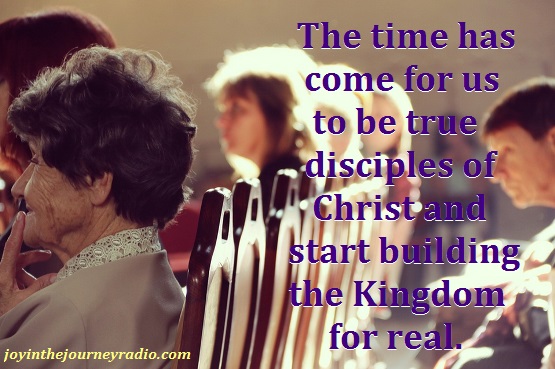
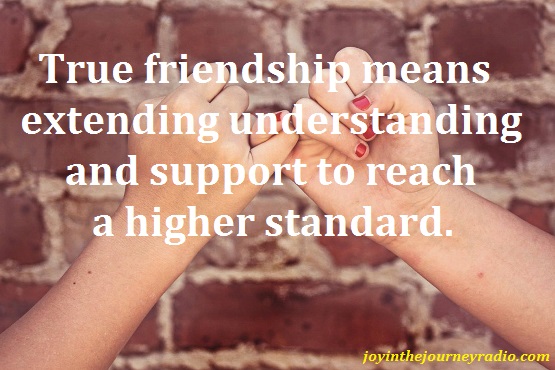

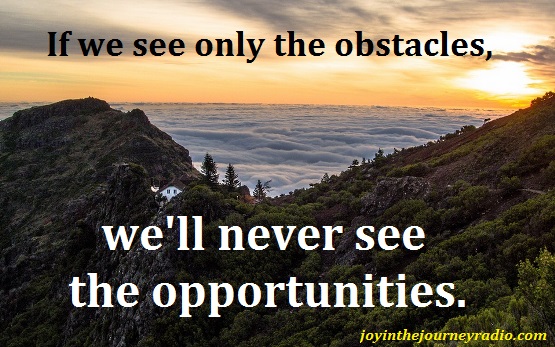

 RSS Feed
RSS Feed